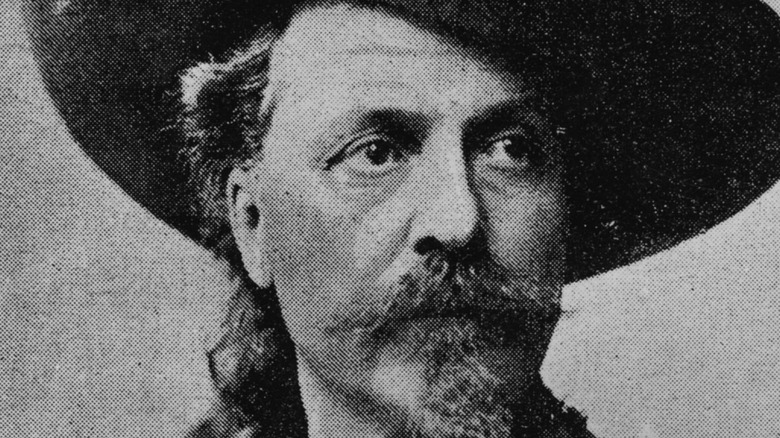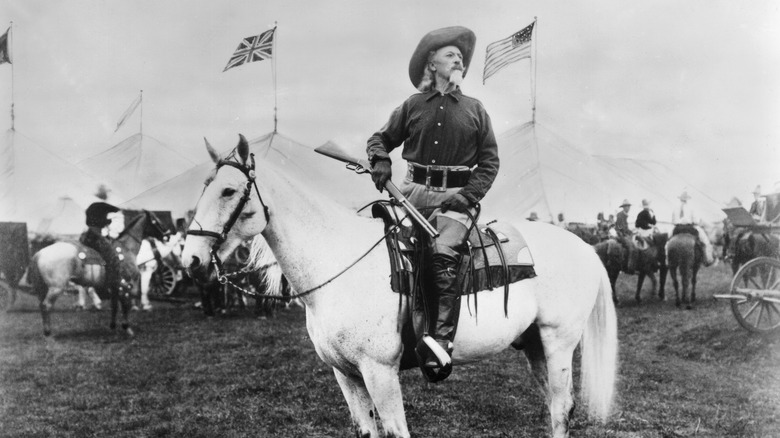A Look At The Bizarre Journey Of Buffalo Bill's Corpse
Both in life and death, William Frederick "Buffalo Bill" was the embodiment of the West and the people who lived there. From childhood, he was thrust into responsibility after his father's death. Bill came into several agricultural professions and even served as a cavalryman for the Union in the Civil War before he found one of his most famous occupations: buffalo hunting. The marksmanship he used to kill thousands of animals captured the public's imagination. Indeed, his public image was so great that later in life, he was able to capitalize on his fame and start his Wild West show.
The attraction uplifted many of the performers who partook in it, giving them legacies of their own. When Bill died in 1917, it was treated as a national tragedy, and he was interred in Colorado as his wife, to whom he entrusted his funerary arrangements. Although his immediate family claimed Bill wished to be buried there, as the generals of Alexander the Great desired to relocate his body for their own purposes, so to did others seek to relocate the remains of Buffalo Bill.
Buffalo Bill was a source of cultural pride and rivalry for two states
While Buffalo Bill evidently became fond of Colorado, Wyoming had strong ties to his legacy as well. Many invoked statements he had made earlier in life that they felt justified him being buried/reburied there (via Mental Floss). Colorado refused to accept this view, as they felt in the end, Bill made his wishes clear. Still, this didn't stop those who felt wronged. For years, many sought to challenge the status quo through claims of legal falsification and threats of outright stealing Bill's remains away. His own niece even broke away from the rest of the family to aid in the relocation efforts (via Denverite).
Some in Cody, Wyoming (the town which specifically laid claim to Bill's remains) even insist that theft already took place in 1917 — that he has truly been buried there all along (via True West Magazine). None of this is substantiated, though, as Bill's funeral was open casket. And unless the unlikely theft somehow took place before his burial, they would have had to get through layers of concrete and two metal coffins meant to secure his body. After the deployment of the National Guard in response to a 1948 offer of $10,000 to any who could relocate Bill, there has been no verified move to do so.

